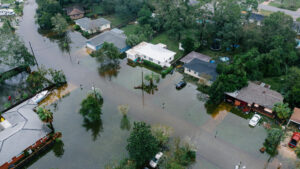The Risks Behind Demotech’s Insurance Ratings in Storm-Prone States
As climate disasters intensify and major insurers retreat from high-risk markets like Louisiana and Florida, smaller insurance companies have filled the gap, often relying on Demotech insurance ratings to prove their financial stability. But a growing number of policyholders and consumer advocates are questioning whether those ratings truly reflect the companies’ ability to withstand severe weather events.
A Promise That Didn’t Hold Up
For homeowners like Nadia Hart in LaPlace, Louisiana, an “A” rating from Demotech signaled trustworthiness. Hart, a disabled single mother, purchased a policy for her three-bedroom home through Lighthouse Excalibur Insurance, which had earned a top financial stability rating from Demotech. But when Hurricane Ida struck in 2021, Lighthouse collapsed under the weight of 16,000 claims, leaving Hart and thousands of others waiting years for payouts.
“I lost everything,” Hart said. “I assumed the A grade meant they could be relied on, but they collapsed so fast.”
How Demotech Became a Market Player
Demotech, a small Ohio-based rating firm, has built a niche by evaluating regional insurers that bigger agencies—like AM Best, S&P Global, and Kroll Bond Rating Agency—often ignore. Today, Demotech insurance ratings cover nearly 98% of the smaller insurers in storm-prone states, with 50.7% of Florida’s homeowners relying on companies graded by Demotech.
According to Demotech co-founder Joseph Petrelli, the firm’s mission is to ensure homeowners can access coverage where major insurers have pulled back. “We created this space,” Petrelli said. “No one else was interested in doing that at the time.”
A Track Record Under Scrutiny
Despite its efforts, Demotech’s ratings have come under fire for failing to predict insolvencies. A Wall Street Journal analysis found that insurers rated by Demotech were 30 times more likely to fail compared to those assessed by its larger competitors. Since 2017, 17 Demotech-rated home insurers have gone under, collectively leaving behind at least $1.7 billion in unpaid claims. All but one of the 15 property and casualty insurers that collapsed in Florida and Louisiana between 2021 and 2023 had an A rating from Demotech within a year of their failure.
Consumer advocates argue that the firm’s approach allows smaller companies to bet on weather risks without the reserves needed to weather catastrophic storms. “Consumers don’t want to trust their homes to highflying gamblers,” said Amy Bach, executive director of United Policyholders.
Why Ratings Matter So Much
A strong rating isn’t just about reputation—it’s often a requirement for securing a mortgage. Fannie Mae and Freddie Mac, the two largest U.S. mortgage-financing companies, require borrowers to hold insurance from companies rated “A” or higher. Without such ratings, insurers risk losing access to a large share of the homeownership market.
This dynamic has encouraged regulators to back Demotech’s efforts, as it provides more insurance options and relieves pressure on “insurers of last resort,” like Florida’s Citizens Property Insurance. In 2024 alone, Citizens moved over 200,000 policies to small insurers carrying Demotech insurance ratings.
Balancing Consumer Protection and Market Access
Petrelli acknowledges the challenges that come with rating smaller, less capitalized insurers. “We understand how difficult it has been for homeowners who lost coverage when certain insurers that Demotech rated became insolvent,” he said, citing “complex and fast-moving pressures” behind recent failures.
Yet the broader question remains: Can Demotech insurance ratings provide both the access homeowners need and the reliability they expect? For consumers like Hart, the answer feels far from clear.

